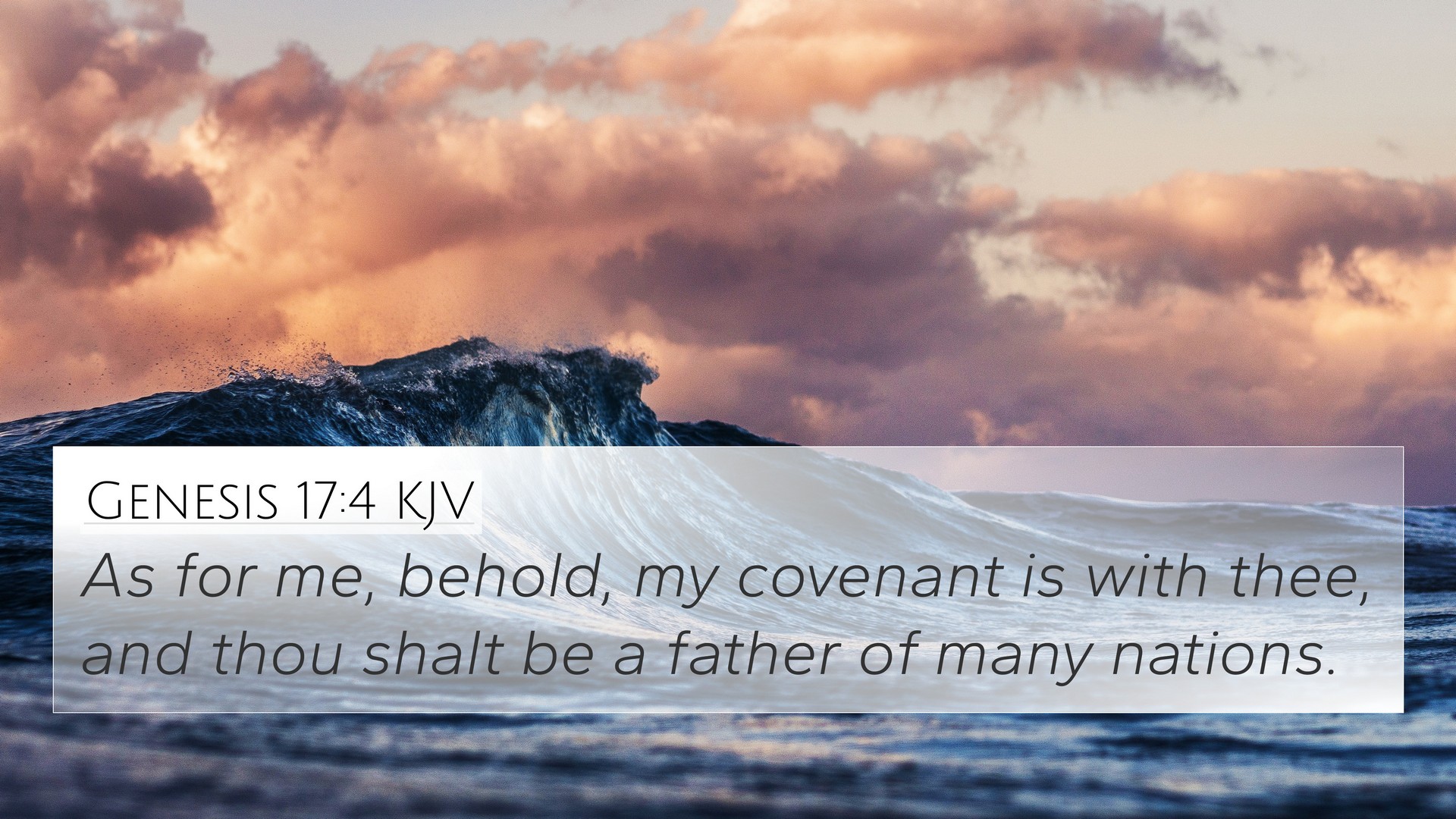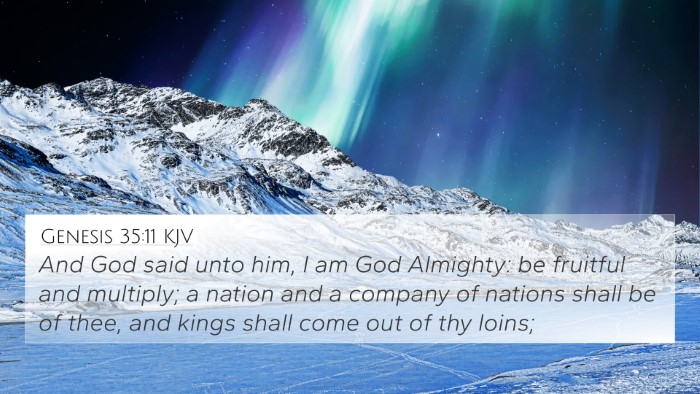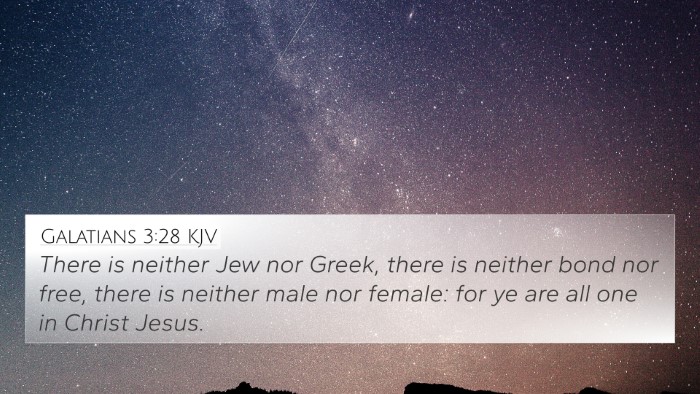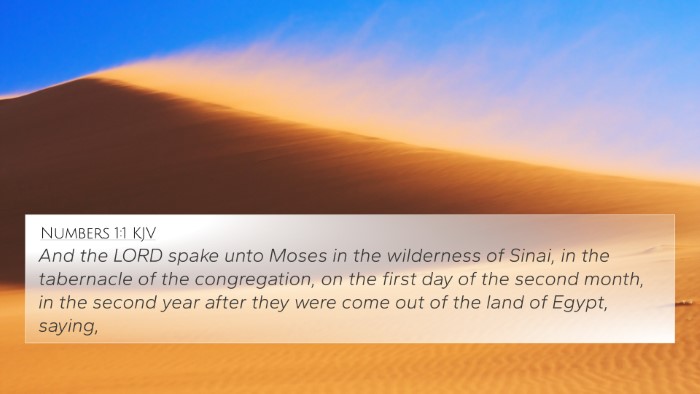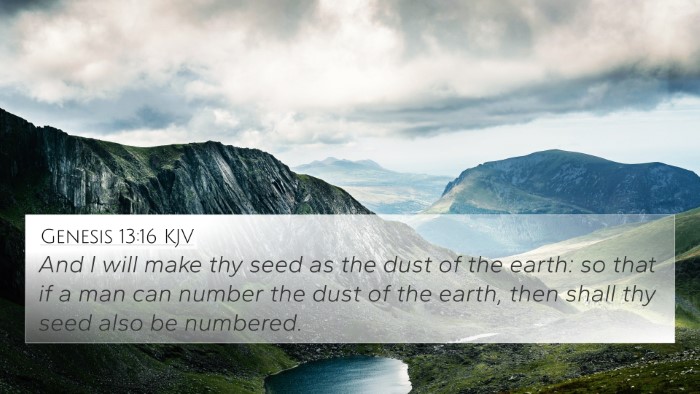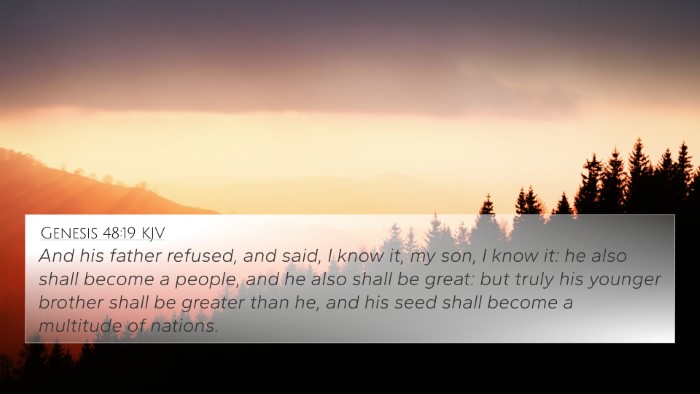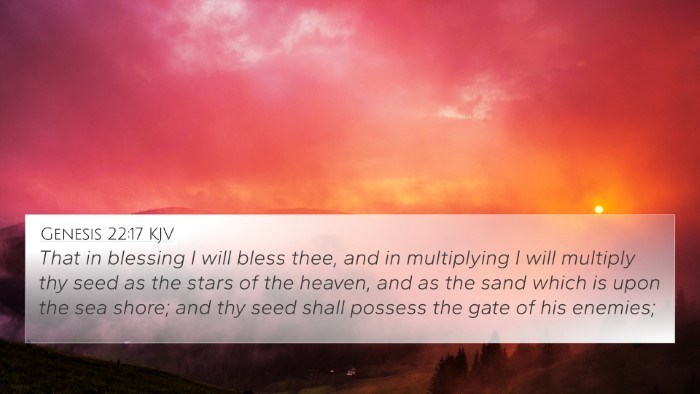Understanding Genesis 17:4
Genesis 17:4 states, "As for me, behold, my covenant is with you, and you shall be the father of a multitude of nations." This pivotal verse marks a significant moment in the covenantal relationship between God and Abraham. Below, we will explore the meaning and implications of this verse, integrating insights from classic public domain commentaries.
Context and Overview
This verse occurs within God's unilateral covenant with Abraham, marking a promise not only of a personal relationship but also of legacy and lineage. The introduction of the term "father of a multitude of nations" significantly foreshadows the future expansion of Abraham's descendants and God's plan for the nations through them.
Insights and Interpretation
- Matthew Henry's Commentary:
Matthew Henry emphasizes the assurance of God's plans despite human limitations. God assures Abraham that through him, every nation will be touched and blessed. This marks a shift from a singular focus on Israel to an inclusion of all nations, thus highlighting the expansiveness of God's grace.
- Albert Barnes's Notes:
Barnes notes the significance of the title "father" in both a physical and spiritual sense. Abraham's role as a patriarch extends beyond mere biological descent to a spiritual heritage that encompasses all believers, as interpreted through the New Testament.
- Adam Clarke's Commentary:
Clarke explores the covenantal nature of this promise, indicating that God's commitment to Abraham is foundational for understanding subsequent biblical covenants. He stresses the enduring nature of this promise, influencing not only Israel but extending to Gentiles as part of God's overarching plan for humanity.
Bible Verse Cross-References
This verse connects deeply with multiple other scriptures, revealing the thematic connections throughout the Bible:
- Genesis 12:2-3: The original call of Abraham and the promise of blessing for all nations through him.
- Genesis 15:5: God's promise of descendants as numerous as the stars, reinforcing the breadth of His covenant.
- Romans 4:17-18: New Testament reflection on Abraham's faith as the father of many nations, establishing the theme of faith transcending lineage.
- Galatians 3:8: This verse refers to how the gospel was preached to Abraham, illustrating that all nations would be blessed through him.
- Isaiah 51:2: Calls Abraham "the rock from which you were hewn," emphasizing his role as a foundational figure in God's salvific history.
- Hebrews 9:15: Discusses Christ as the mediator of a new covenant, linking back to Abraham as a key covenant figure.
- Luke 3:8: Acknowledges Abraham as an ancestor, reinforcing his importance in God's covenant plan.
Thematic Bible Verse Connections
The connections between these verses illustrate a profound inter-Biblical dialogue:
- The widespread implications of God's promise to Abraham represented in both Old and New Testaments.
- Abraham's role as a figure of faith serves as a model for believers, linking generations through faith-based relationships rather than merely biological ones.
Comparative Bible Verse Analysis
When conducting a comparative study of Abraham’s promises with Pauline epistles, one can observe:
- Faith Versus Law: In Romans, Paul discusses the promise to Abraham emphasizing that faith, not works, is the path to righteousness.
- Covenant Inclusion: Galatians establishes that through Christ, both Jew and Gentile alike are included in the promise made to Abraham.
Tools for Bible Cross-Referencing
For deeper exploration of cross-references, consider using:
- Bible Concordance: Helps locate verses and themes systematically.
- Bible Cross-Reference Guide: For finding connections within texts that illuminate scriptural themes.
- Cross-Reference Bible Study: Methods focused on drawing thematic and narrative connections across the scriptures.
Conclusion
Genesis 17:4 offers a rich ground for exploration of biblical themes, covenantal relationships, and the significance of Abraham in both Old and New Testament theology. Through a careful analysis of cross-referenced verses, one can gain a holistic understanding of this foundational figure in God’s redemptive plan for humanity.
